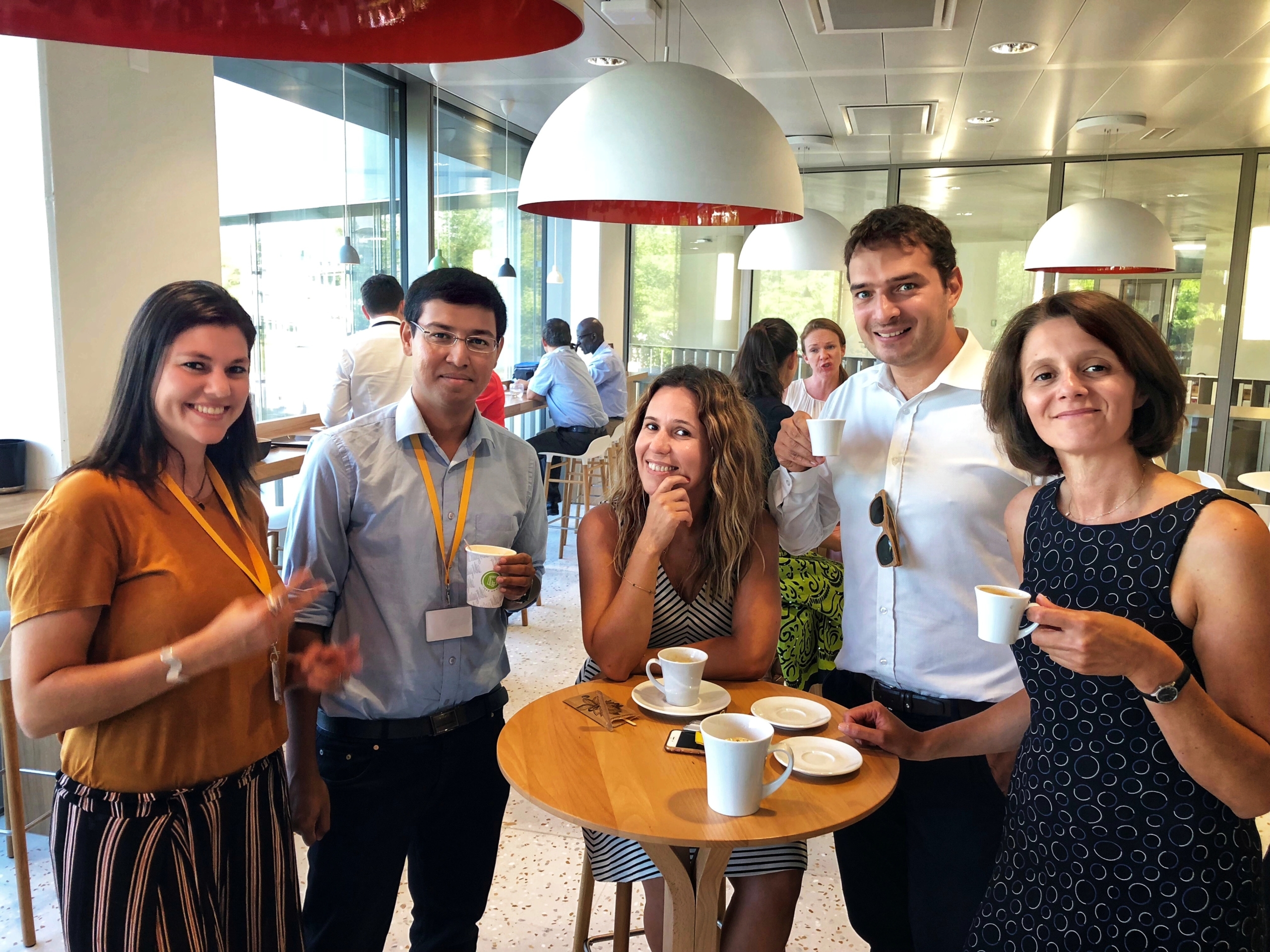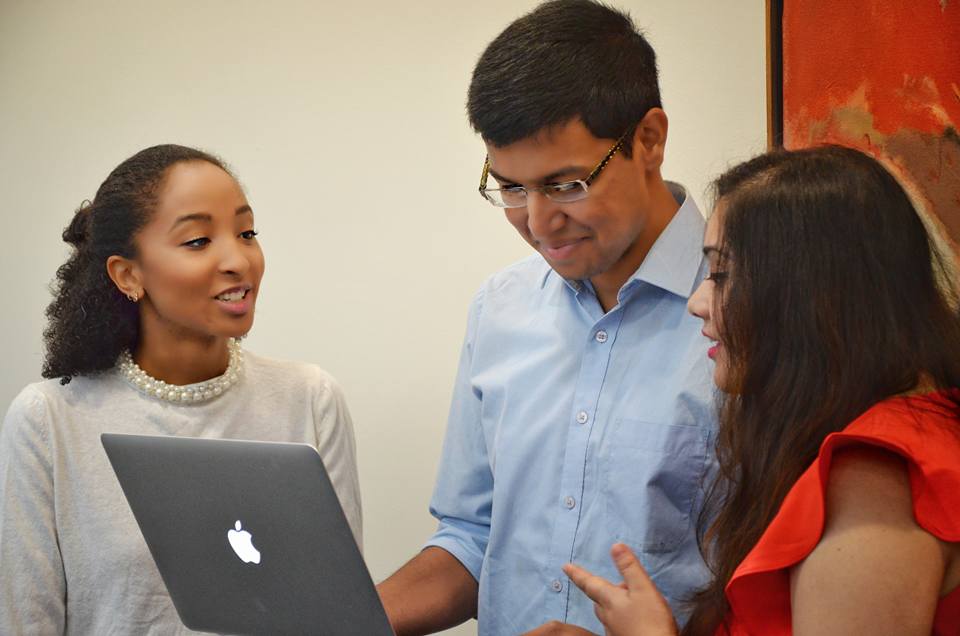My Management MSc internship with The Global Fund in Geneva
21/08/2018

What is the organisational culture like?
The Global Fund is a large organisation with over 1000 employees, the work culture is pretty laid back and relaxed. There is a lot of thinking that goes into the processes before they are executed. Everyone works towards The Global Fund’s goal of ending the epidemics of AIDS, Tuberculosis and Malaria so the focus is on finding new ways to acheive this.
What has been the biggest challenge?
Moving to a new country was a big challenge for me but as I was excited about it, it didn’t bother me. What did bother me were the costs. Switzerland is so expensive that even London felt cheap. So I had a hard time managing my costs for the first couple of weeks. Apart from that, it took me almost a month to figure out all the aspects of the Supply Chain Department. But having an understanding supervisor and a helpful team around me ensured that I never felt out of place even if asked some silly questions.
How are decisions made?
It depends on the impact that the decision will have on a country. After a lot of deliberation, a decision is made and it can take months for the decision to be implemented. On the upside, this ensures that risk is minimised and there is very little chance of it having an adverse effect or not meeting expectations.
How do teams work within the organisation?
The Supply Chain Team work closely with the country teams who are in charge of monitoring the effects of diseases in each country. Based on that, the Supply Chain Department figure out the demand, the ways of improving the supply chain of medicines and also new opportunities where the organisation can help in improving the overall health systems in a country.
What have you learned?
I need a separate blog to write an answer for this. The amount of things I’ve learnt and I am still learning while I am writing this is just incredible. I am responsible for providing new ideas on how to improve the work process. During my internship I held interviews with at least 15 people within a week. I needed to have a clear idea on what every process does and how changing one process will affect the next one. Not only that, I was tasked with giving the organisation a new set of supplier relationship management practices which they can use to improve relations with suppliers. By delivering presentations and obtaining feedback from them, felt like I was actually contributing towards a change that they are looking for. As I mentioned, a paragraph is not enough to convey the amount of things I have learnt.
What do you think are the benefits of internships in a large/small organisation?
Having been part of a large organisation before back in India, I always felt like a number among thousands of employees. When I joined The Global Fund with less employees, I have never felt like a number and with each passing day my confidence has grown. When I felt like my presentations were being assessed by managers who kept questioning me on every aspect, I felt a bit intimidated initially. But with every presentation I improved on my abilities which will help me greatly in future roles.

How have you found your year at Cranfield?
My year at Cranfield has flown by. I wish it had gone a bit slower than it did but the amount of things I have done in the past 12 months is quite astonishing. The education, the travel, the internship, the personal development and the confidence gained all adds up to make you a better person. I remember one of my peers at Cranfield telling me that, “moving to a new country doesn’t mean losing your identity, it’s just adding to all the values that you already have and exploring a different environment out of your comfort zone.” If I had the opportunity to, I would do it all over again.
What has been the best experience of your Master’s course?
The study trip to Granada stands out as one of the best experiences for me. We learnt about different cultures and understood our peers a lot better. In future, I hope that this module would move to earlier in the year so that students can connect better when they start their year at Cranfield. Once we leave our comfort zone back home, we try to find one in a new place. So you see an Indian community, a Chinese community quite often in diverse places. This module helped us to express ourselves by mixing with everyone as we stayed together in one place and we became closer than ever.

Why do you think the internship is important?
For me, you always learn more when it’s practical than when you read about the theories in books. So an internship should be mandatory for people to apply what they have learnt over the 9 months. It also helps to give you a direction to follow in the future. I never knew that supply chain would be an area that I’d be interested in. But the module and this internship has reaffirmed my belief that my future lies in this department.
What skills from the MSc have you applied during your internship so far?
My supervisor at Cranfield provided me with all the tools that I needed in order to figure out the gaps in the current process. Every meeting with your Cranfield supervisor is crucial to ensure you are heading towards the right direction both in terms of your thesis as well as the objectives of the internship.
Apart from that, you learn how to communicate, which is arguably the most important factor in any organisation. Communication is the solution to every problem if done well and that is something that Cranfield has taught me throughout the course.
What are your aims and goals for the future? How do you think your time at Cranfield will help you achieve those?
My aim is to work in the Supply Chain Department of an international organisation. I would prefer to work for a company where I can utilise my skills that I learnt at Cranfield and honed at The Global Fund. If I had been asked this question a year ago, I would have said that I would like to work in a specific country. But having had an impeccable international experience throughout the year by visiting 7 different countries both for travel as well as for professional reasons, I can confidently say that I would be comfortable anywhere in the world. Cranfield has changed my perspective towards places that I never thought I’d be able to move to.

Categories & Tags:
Leave a comment on this post:
You might also like…
From classroom to cockpit: What’s next after Cranfield
The Air Transport Management MSc isn’t just about learning theory — it’s about preparing for a career in the aviation industry. Adit shares his dream job, insights from classmates, and advice for prospective students. ...
Setting up a shared group folder in a reference manager
Many of our students are now busy working on their group projects. One easy way to share references amongst a group is to set up group folders in a reference manager like Mendeley or Zotero. ...
Company codes – CUSIP, SEDOL, ISIN…. What do they mean and how can you use them in our Library resources?
As you use our many finance resources, you will probably notice unique company identifiers which may be codes or symbols. It is worth spending some time getting to know what these are and which resources ...
Supporting careers in defence through specialist education
As a materials engineer by background, I have always been drawn to fields where technical expertise directly shapes real‑world outcomes. Few sectors exemplify this better than defence. Engineering careers in defence sit at the ...
What being a woman in STEM means to me
STEM is both a way of thinking and a practical toolkit. It sharpens reasoning and equips us to turn ideas into solutions with measurable impact. For me, STEM has never been only about acquiring ...
A woman’s experience in environmental science within defence
When I stepped into the gates of the Defence Academy it was the 30th September 2019. I did not know at the time that this would be the beginning of a long journey as ...







Wow! Amazing Raj.